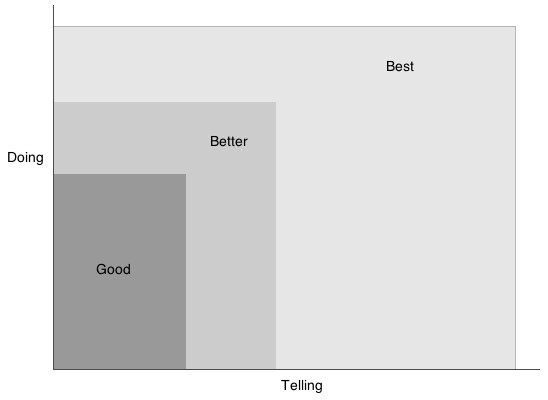In the sport of mixed martial arts, there’s what we call a fighter’s chance.
Your opponent could be faster, stronger, and better but you might still score a lucky knockout. It happens.
Outside the cage, we all deal with a balance of probabilities when it comes to tasks and events in our lives.
As a former professional athlete, I’m a fierce advocate for routines and believe they are the best guard against randomness in life.
It helps me feel more in control as I go about each day. Maybe it’s merely an illusion of certainty, but hey, I’ll take what I can get.
That said, it’s not nearly enough to just get by. Today, there is growing acknowledgment that we need to be better personally and professionally – more productive and efficient – just to meet the demands of work and life.
Whether it’s your dream job or finding true love, luck is an unavoidable factor. No routine, productivity app or life hack can adequately account for it.
When it comes to luck, we simply shrug our shoulders because we have no means of controlling it.
While we can’t directly control luck, we can increase probabilities. It’s math. That’s the same reason why salespeople are often told: “it’s a numbers game”.
Though others might call it “the law of averages” at work, it’s not enough to just be average or wait around for things to happen.
That’s why salespeople aggressively call, network, prospect and meet more people. Eventually, they’ll convince someone to become a customer.
According to tech entrepreneur Jason Roberts, you can actively expand your “luck surface area” and increase the chances of serendipitous moments.
What is your luck surface area?
In his blog, Roberts explains that your luck surface area is directly proportional to the actions you take in something you’re passionate about combined with the people you interact with when doing so.
Simply put, by performing more of our passions and communicating that to more people around us, we can increase our luck, or expand our luck surface area, as he calls it.

The more you invest in doing things related to your passion, the more you develop expertise and skills in it. That gives you value, and if you can transmit that knowledge and make others aware of your passions and ability, there will be some percentage of people who want to capture that value and expertise.
Essentially this becomes a compounding principle, where bigger begets bigger and passionate people tend to attract more passionate and energetic individuals just like them.
I recently covered the concept of aggregating micro-improvements on my blog.
When you develop a deep specialization or expertise in an area you’re passionate about, you can enjoy exponential growth. Your energy and enthusiasm for connecting with others will help you attract like-minded folks who are excited to be around you.
When I was making a name for myself in the early aughts of MMA, I attracted the attention of a guy who would quickly become my manager – Monte Cox.
He had an entrepreneurial flair, the gift of gap, and was already managing many big names in the fight business. Monte offered his services, and I was sold.
By then I had accumulated a winning streak in UFC, and I also developed what many considered to be a distinct identity – a former high school math teacher turned professional fighter.
Following my loss to Anderson Silva, I wanted to further optimize my training and fight preparation. So, I reached out to Monte, and he told me about a guy down in Seattle called Matt Hume.

While I wasn’t won over immediately like I was with Monte, I did end up working with Matt for my fight prep. More on how that happened in another post.
By some fortuitous chance, Matt got an invite from Chatri Sityodtong, the Chairman and founder of ONE Championship to host a seminar at Evolve MMA in Singapore.
He roped me in, and I was soon on a plane bound for Singapore. Everything went well and I got a chance to meet and talk with both Chatri and Victor Cui, the CEO of ONE Championship.
They told me if I was ever interested in a job after I retired that they would have an offer waiting for me in ONE Championship.
I don’t doubt that my ability to fight, knowledge of MMA and how to navigate the media won them over. Long before I had met these two industry executives, I was already building a legacy that would place me on an executive career path post-retirement.
Consciously staying clear of controversy and being a role model was instrumental in establishing an image that companies like ONE Championship wanted to associate with.
If you dive deep into your passions, gut it out and keep telling your story, you might unlock some amazing opportunities.
